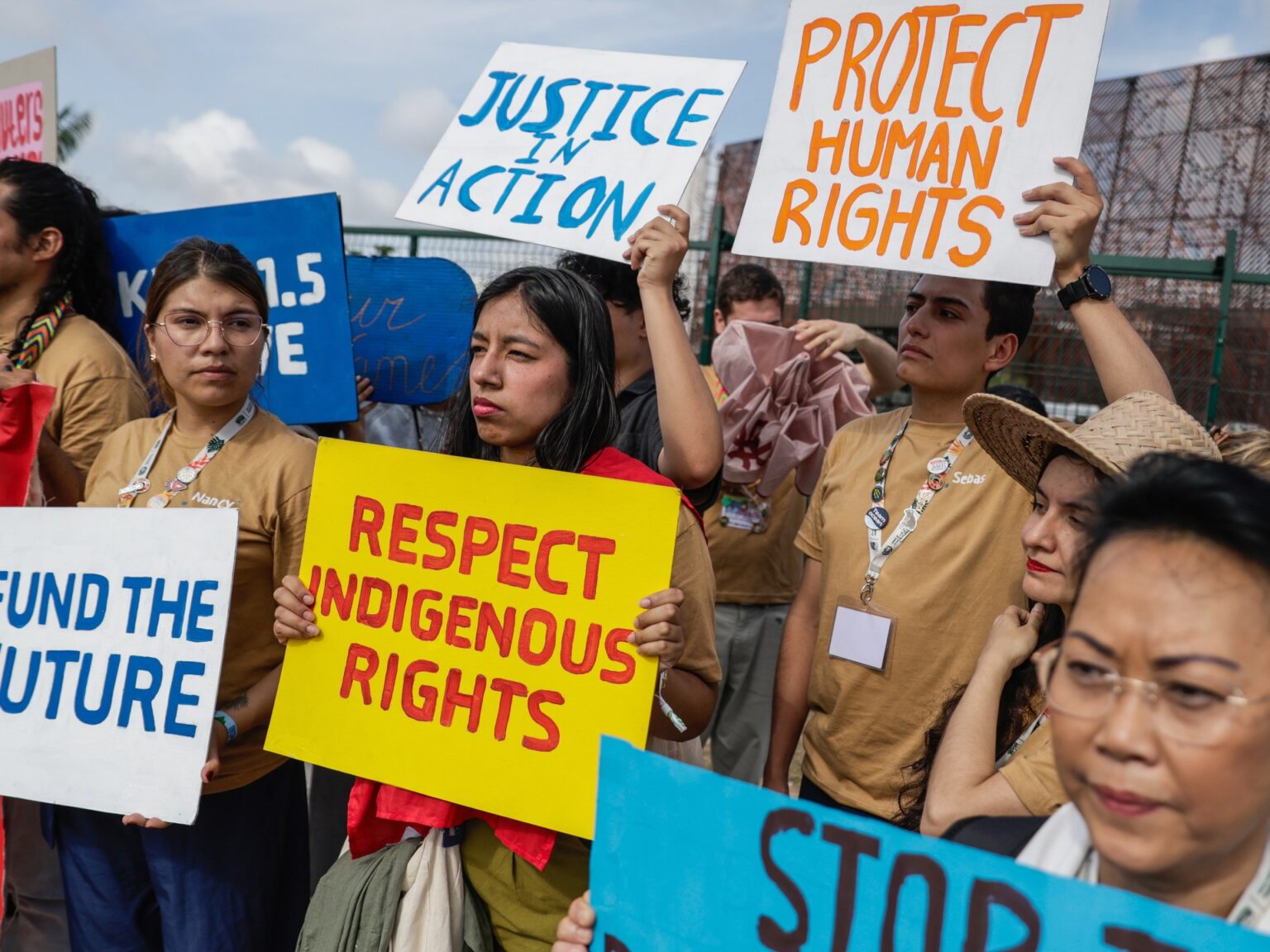World leaders have agreed to a deal at the United Nations climate conference in Brazil that seeks to address the crisis, but the agreement does not include any mention of phasing out the fossil fuels driving climate change.
The text was approved on Saturday afternoon after negotiations stretched through the night, well beyond the expected close of the two-week COP30 summit in the Brazilian city of Belem, amid deep divisions over the fossil fuel phase-out.
Recommended Stories
list of 3 itemsend of list
The agreement pledges to review climate-related trade barriers and calls on developed nations to “at least triple” the money given to developing countries to help them withstand extreme weather events.
It also urges “all actors to work together to significantly accelerate and scale up climate action worldwide” with the aim of keeping the 1.5 degrees Celsius (2.7 degrees Fahrenheit) mark for global warming – an internationally agreed-upon target set under the Paris Agreement – “within reach”.
Wopke Hoekstra, the European Union’s climate commissioner, said the outcome was a step in the right direction, but the bloc would have liked more.
“We’re not going to hide the fact that we would have preferred to have more, to have more ambition on everything,” Hoekstra told reporters. “We should support it because at least it is going in the right direction,” he said.
France’s ecological transition minister, Monique Barbut, also said it was a “rather flat text” but Europeans would not oppose it because “there is nothing extraordinarily bad in it”.
Cuban Foreign Minister Bruno Rodriguez Parrilla also said in a social media post that while the outcome “fell short of expectations”, COP30 demonstrated the importance of multilateralism to tackle global challenges such as climate change.
‘Needed a giant leap’
Countries had been divided on a number of issues in Belem, including a push to phase out fossil fuels – the largest drivers of the climate crisis – that drew opposition from oil-producing countries and nations that depend on oil, gas and coal.
Questions of climate finance also sparked heated debates, with developing nations demanding that richer countries bear a greater share of the financial burden.
But COP30 host Brazil had pushed for a show of unity, as the annual conference is largely viewed as a test of the world’s resolve to address a deepening crisis.
“We need to show society that we want this without imposing anything on anyone, without setting deadlines for each country to decide what it can do within its own time, within its own possibilities,” Brazilian President Luiz Inacio Lula da Silva said earlier this week.
Speaking during Saturday afternoon’s closing session in Belem, COP30 President Andre Aranha Correa do Lago acknowledged that several countries as well as civil society groups “had greater ambitions for some of the issues at hand”.
“As President Lula said at the opening of this COP, we need roadmaps so that humanity – in a just and planned manner – can overcome its dependence on fossil fuels, halt and reverse deforestation and mobilise resources for these purposes,” Correa do Lago said.
“I, as president of COP30, will therefore create two roadmaps: One on halting and reverting [reversing] deforestation and another to transitioning away from fossil fuels in a just, orderly and equitable manner,” he said, spurring a round of applause from delegates.
Correa do Lago also added that the first international conference on the phase-out of fossil fuels is scheduled to take place in Colombia in April.
Speaking to Al Jazeera before the draft text was released, Asad Rehman, chief executive director of Friends of the Earth, said richer countries “had to be dragged – really kicking and screaming – to the table” at COP30.
“They have tried to bully developing countries and have weakened the text … But I would say that, overall, from what we’re hearing, we will have taken a step forward,” Rehman said in an interview from Belem.
“This will be welcomed by the millions of people for whom these talks are a matter of life and death. However, in the scale of the crisis that we face, we of course needed a giant leap forward.”
https://www.aljazeera.com/news/2025/11/22/cop30-draft-text-urges-more-funds-for-poorer-countries-omits-fossil-fuels?traffic_source=rss


